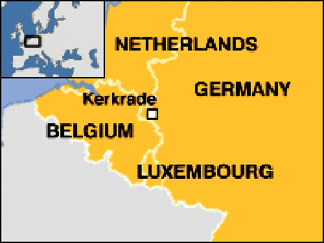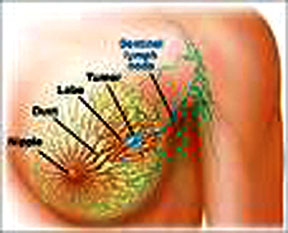|
observer |
|
|
|
|
|
OTHER LINKS |

|

|

|
HealthBluetongue virus hits Dutch farm
It is the first time the insect-borne virus, which is normally found in Mediterranean regions, has been discovered in northern Europe. Health experts said the viral infection did not pose a risk to human health. All species of ruminants, which include goats and deer as well as cattle, can be infected. Sheep are the most susceptible, with up to 70% of an infected flock dying from the virus. Visible characteristics of the disease in sheep include a fever that may last for several days, mucous lining the animal's mouth, nose and eyes, and excessive salivation and frothing. Transportation ban "We had a report at the beginning of this week that there could possibly be bluetongue in the south of Holland at a farm with sheep," a spokeswoman for the Dutch Agriculture Ministry told the BBC. "Our veterinarians were very surprised by this because it is a disease that is known to occur in southern Europe but not in the north." Following a number of tests in laboratories in the Netherlands and the UK, scientists confirmed the sample had tested positive. "We have one farm with sheep that have bluetongue, and there are 10 farms with suspected cases of the disease," the spokeswoman said. The Dutch government introduced an immediate ban on live exports of sheep, cattle and goats and "living products" including sperm, cells and embryos. A number of other measures have also been put in place. Transportation of animals has been banned in a 20km (12-mile) radius around the affected farm, and farmers are being told to keep their animals indoors and to spray insecticides on their land.
The insects prefer to feed on large animals, such as cattle. However, when there are no cattle in the area or if the midge population is high then sheep are targeted. The spokeswoman for the Dutch Agriculture Ministry said officials were investigating how the virus was able to travel so far north. "The midges that transmit the virus have not been found in Holland, but we have found two other species that can carry the virus - these are local midges that are accustomed to colder weather. "As for how the virus itself got here, we have not got a clue at this stage," she said. "We have flown in experts from the EU to help us find out the answer to this question." Some scientists believe that climate change could be behind the northward spread of the virus. The warming temperatures have seen the midges gradually move into higher latitudes. A spokesman for the UK's Department for Environment, Food and Rural Affairs (Defra) said officials were monitoring developments in the Netherlands. He said that the department would issue advice to UK farmers if it was necessary, but no action was needed at this stage. The spokesman added that consumers should not be alarmed because the bluetongue virus posed no risk to human health. (BBC NEWS)New breast cancer test 'reliable'
The Swiss research published in Breast Cancer Research confirms its worth. The team from University Hospital Basel found gene expression profiling of needle biopsy samples gave an accurate picture of entire breast tumours, despite only sampling very tiny parts of the cancers. This information could then be used to distinguish which cancers are aggressive and need intensive treatment, such as intensive chemotherapy after surgery, and which tumours have little chance of returning after being removed surgically. Far less invasive The Swiss study also suggests it might be better to obtain the breast tissue for gene analysis using core needle biopsy rather than surgically cutting out a piece of the breast. Not only is core needle biopsy far less invasive, the authors say it appears to give a better indication of the gene patterns present in the cancer. In the study, the needle biopsy procedure seemed to trigger the expression of genes involved in wound healing as well as tumour invasion and spread. This meant that any subsequent surgical samples taken had a modified gene expression profile. This is important for doctors to appreciate when they are making assessments about the aggressiveness of a cancer and treatment requirements and outcomes, say the researchers. In the latest study, involving 22 women with breast cancer, the expression of four specific genes known to be involved in breast cancer development was significantly increased in surgical samples compared to earlier core needle biopsy samples. In comparison, expression of the four genes was not increased in surgical samples taken from 317 women who did not get a core needle biopsy. 'Helpful study' Dr Rosana Zanetti-D"llenbach and her colleagues from University Hospital Basel warned that the altered gene profile found in the surgical samples obtained after core biopsy might influence a doctor's interpretation of prognosis. They believe core biopsy gives doctors a cleaner, more accurate and more representative picture. (BBC NEWS) |
 The Dutch Government has banned all exports of live sheep, cattle and
goats after a farm tested positive for the harmful bluetongue virus.
Officials have also introduced movement restrictions covering a 170km
radius around the affected farm in Kerkrade.
The Dutch Government has banned all exports of live sheep, cattle and
goats after a farm tested positive for the harmful bluetongue virus.
Officials have also introduced movement restrictions covering a 170km
radius around the affected farm in Kerkrade.  There are also restrictions on the movement of animals that can be
infected beyond a wider 170km (105-mile) exclusion zone. Farmers in this
area are also being told to spray insecticides. Midges blamed The
species of midges that are known to spread the virus are normally found
in warmer parts of Europe, such as the Mediterranean region.
There are also restrictions on the movement of animals that can be
infected beyond a wider 170km (105-mile) exclusion zone. Farmers in this
area are also being told to spray insecticides. Midges blamed The
species of midges that are known to spread the virus are normally found
in warmer parts of Europe, such as the Mediterranean region.  A new type of breast cancer test that could ultimately save some
women from unnecessary chemotherapy is reliable, Swiss scientists say.
Core needle biopsy is already commonly used to sample suspect breast
tissue for doctors to examine microscopically. Looking at gene patterns
in the samples too may help spot more aggressive cancers needing
intensive treatment, but proof of this new test is limited.
A new type of breast cancer test that could ultimately save some
women from unnecessary chemotherapy is reliable, Swiss scientists say.
Core needle biopsy is already commonly used to sample suspect breast
tissue for doctors to examine microscopically. Looking at gene patterns
in the samples too may help spot more aggressive cancers needing
intensive treatment, but proof of this new test is limited. 







